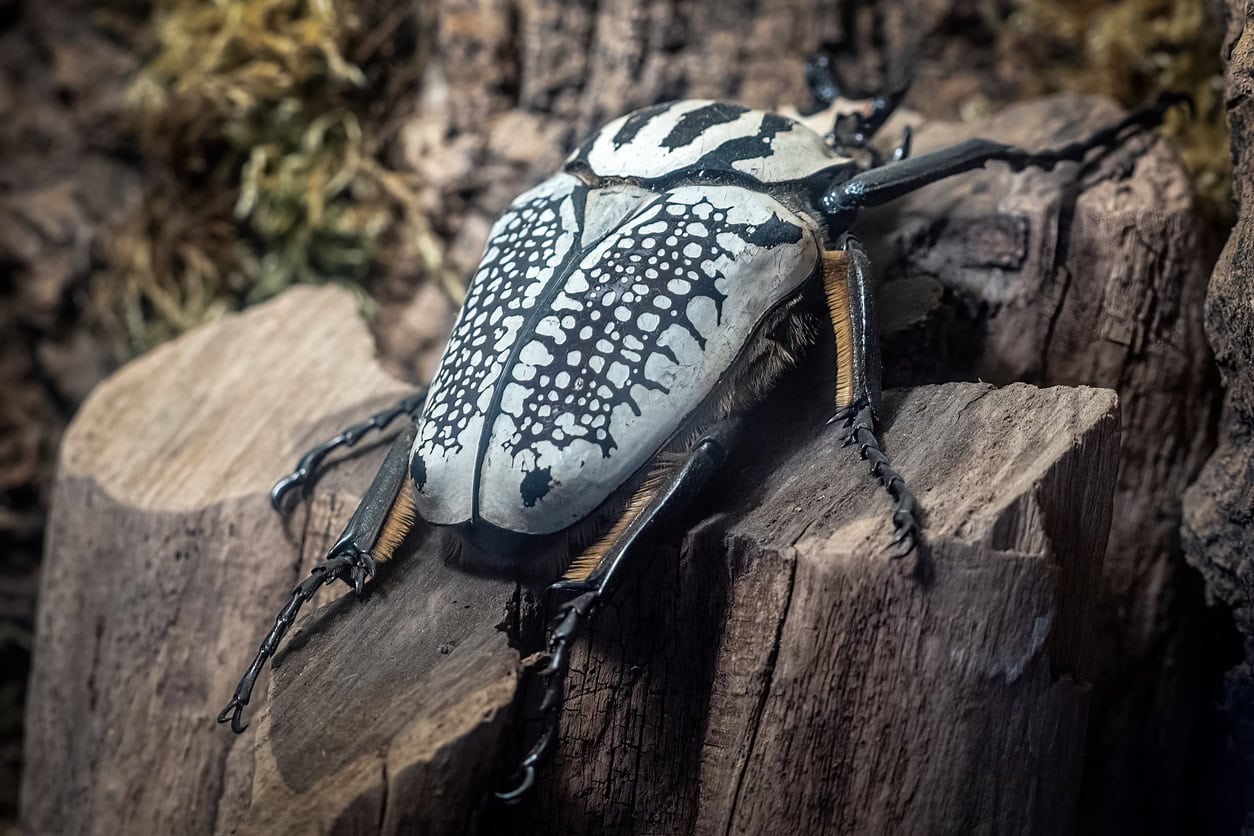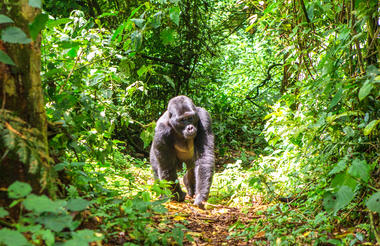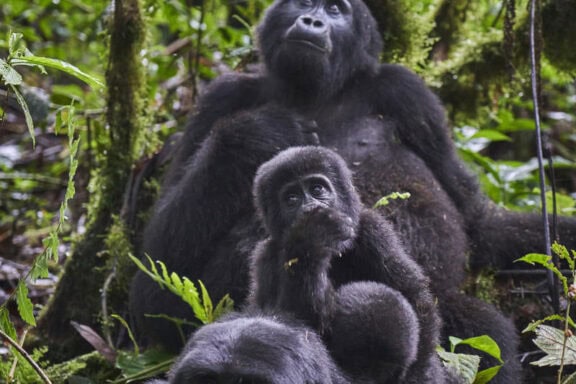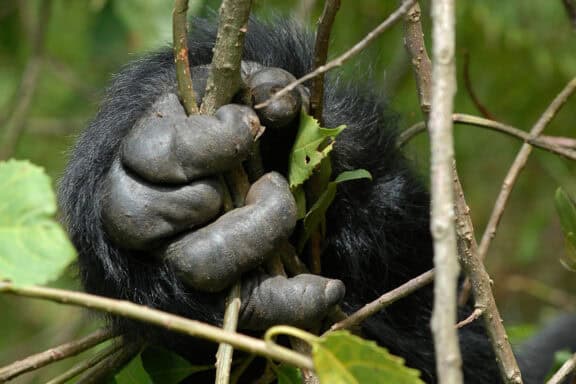Found in the rainforests of central and western Africa, Goliath beetles live in rotting logs and fallen trees. The largest and heaviest insect in the world, some specimens reach lengths of up to six inches (15 cm) and weigh as much as 3.5 ounces (100 g). These beetles are nocturnal insects, feeding on fruit, nectar, and sap. Keep reading for some more fascinating facts about this remarkable creature.
- Male Goliath beetles are larger than females.
- Males can be distinguished by their Y-shaped horns, which they use to fight other males in battles for feeding sites or mates.
- The female Goliath beetle can lay up to 100 eggs at a time.
- Goliath beetle larvae can grow up to 4 inches (10 cm) long.
- It has a lifespan of around two years.
- Incredibly strong for their size, Goliath beetles can carry up to 850 times their own body weight – the equivalent of a human lifting almost 65 tons.
- Goliath beetles are omnivorous. An adult’s diet consists mainly of tree sap and ripe fruits, while larvae feed on protein-rich foods like decaying wood and vegetation, dung, and animal remains.
- While the beetles are famous for their size, they also have a striking appearance, exhibiting a pattern of black, white, and brown. Certain species have a lustrous metallic sheen on their exoskeletons.
- Despite their large size, these beetles are capable fliers.
- Goliath beetles are part of the scarab beetle family.
- They’re strong climbers, using their sharp claws on six legs to scale trees.
- Goliath beetles go through metamorphosis in four stages, starting as eggs, then larvae, then pupae, and finally adult beetles.
Goliath beetles play an important part in a rainforest’s ecosystem, helping to pollinate plants and providing a food source for other animals, like birds and monkeys. The beetles are prized by insect collectors and fetch high prices on the black market. Other threats to the species include habitat loss and deforestation. With African rainforests being cleared at an alarming rate, it’s critical that action be taken to protect these habitats and ensure a future for the Goliath beetle.
The beetles, residing in the central and western African rainforests, are a marvel of nature due to their immense size and distinctive behaviors. Their nocturnal lifestyle, remarkable physical attributes, and crucial ecological roles make them a fascinating subject. However, they’re threatened by habitat loss from deforestation, underscoring the need for urgent conservation efforts. For those intrigued by the Goliath beetles and the rich biodiversity of African rainforests, our wildlife page offers a further glimpse into the existence of these magnificent creatures and many more thriving in the wild.

























 Blog List
Blog List










Written by Johnieka Holtzhausen
• Travel Writer
Verified by Devryn Panaino
• Africa Safari Expert